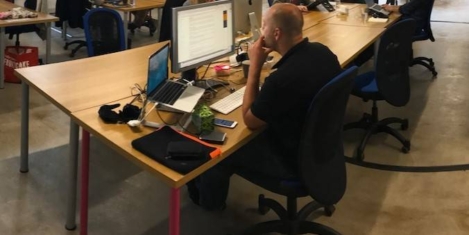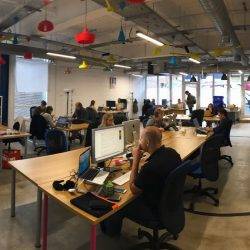To provide the best experiences, we use technologies like cookies to store and/or access device information. Consenting to these technologies will allow us to process data such as browsing behaviour or unique IDs on this site. Not consenting or withdrawing consent, may adversely affect certain features and functions.
The technical storage or access is strictly necessary for the legitimate purpose of enabling the use of a specific service explicitly requested by the subscriber or user, or for the sole purpose of carrying out the transmission of a communication over an electronic communications network.
The technical storage or access is necessary for the legitimate purpose of storing preferences that are not requested by the subscriber or user.
The technical storage or access that is used exclusively for statistical purposes.
The technical storage or access that is used exclusively for anonymous statistical purposes. Without a subpoena, voluntary compliance on the part of your Internet Service Provider, or additional records from a third party, information stored or retrieved for this purpose alone cannot usually be used to identify you.
The technical storage or access is required to create user profiles to send advertising, or to track the user on a website or across several websites for similar marketing purposes.
 Germany is no longer the most popular global destination for corporate real estate investment, according to BrickVest’s latest commercial property investment barometer. Formerly the most popular location in Q3 2017, Germany has now fallen in favour among investors behind the UK, US and France. Germany saw a drop in popularity from 34 percent to 23 percent in the last quarter, marking its lowest rating since Q2 2016. The UK, however, rose from 27 percent to 29 percent in Q4 2017, managing to sustain its general popularity by consistently ranking above 25 percent.
Germany is no longer the most popular global destination for corporate real estate investment, according to BrickVest’s latest commercial property investment barometer. Formerly the most popular location in Q3 2017, Germany has now fallen in favour among investors behind the UK, US and France. Germany saw a drop in popularity from 34 percent to 23 percent in the last quarter, marking its lowest rating since Q2 2016. The UK, however, rose from 27 percent to 29 percent in Q4 2017, managing to sustain its general popularity by consistently ranking above 25 percent.





































